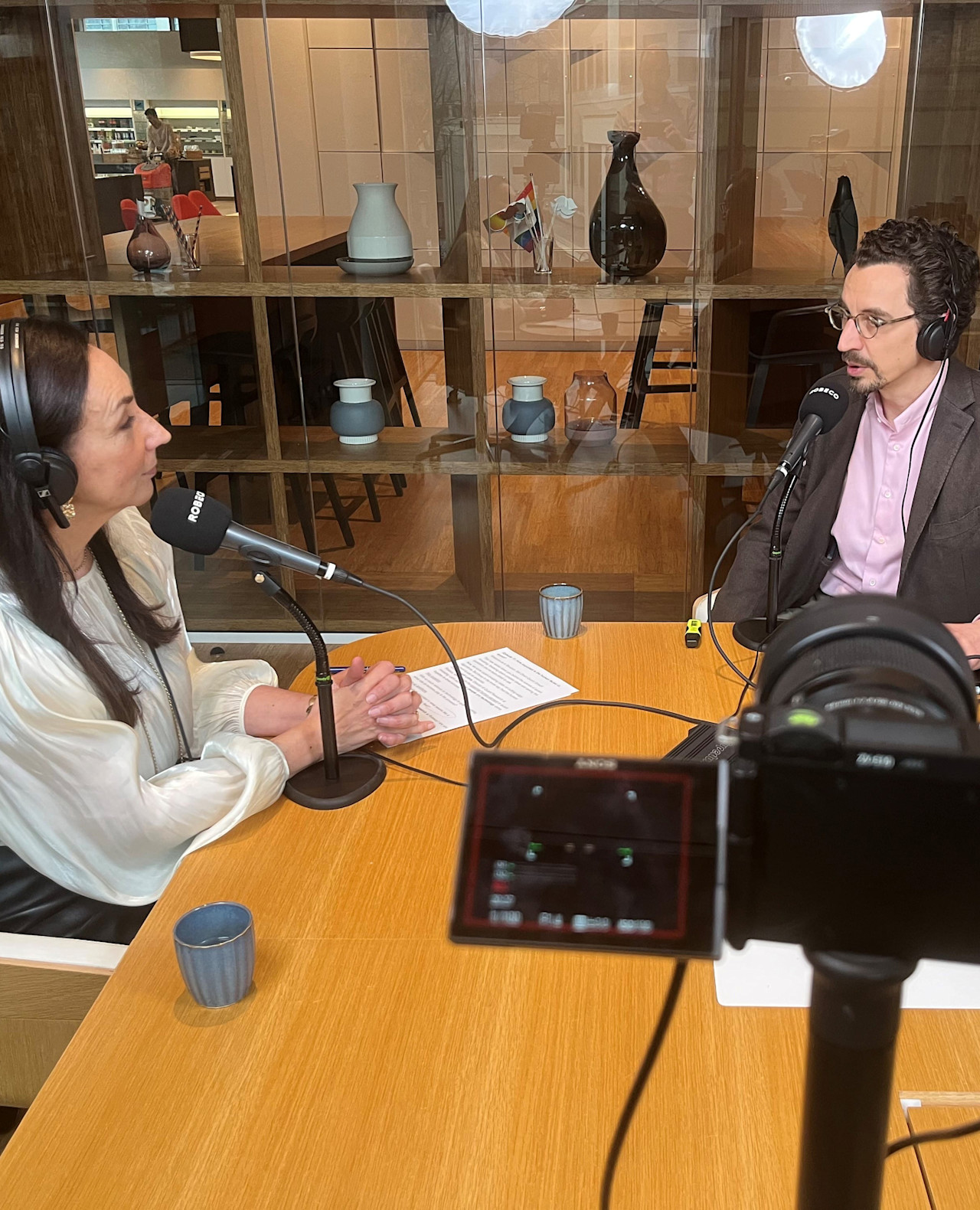
‘The talent in an investment team makes the difference’
Assessing the quality of people and their investment skill is crucial to the manager selection process. We discuss this and other topics with investment professional Edouard Stucki, former pension fund manager at comPlan in Switzerland.
Summary
- Periods of market turmoil do turn around over time
- Business, process and people are key factors when selecting managers
- The war for talent is one of the big challenges asset managers will face

As a long-term investor, how do you manage through uncertainty such as the current market turmoil?
“First you need to consider the purpose of the investment. My perspective is that of a former pension fund manager who oversaw a maturing and unleveraged scheme. In this case, pension contributions still cover pension payments comfortably, so there is no dependence on the asset portfolio. Pension funds in Switzerland are also required to have a securities valuation reserve, which is established to provide a buffer.”
“Therefore, there is no immediate pressure to sell fast, as the portfolio is designed to accommodate market declines to a certain extent. This can cover significant losses for a year or so. But if this trend continues for several years, we would have to assess our options. The market turmoil mainly – but not only – concerns equities. For this, we have a risk management tool to manage our allocations. So if volatility and other price-based indicators exhibit extreme levels, we can change our positioning accordingly.”
“The average equity exposure is 25% of the portfolio. If conditions are favorable then we can add to our position by a certain amount. If the environment becomes very risky, we can trim our holding by a defined amount. But we never dip below this lower level and we always remain invested. Within our equity basket, we also have an allocation to low volatility stocks. Robeco Conservative Equities strategies account for considerable portions of our developed market and emerging market equity holdings, respectively. So this further reduces our exposure to risk.”
“In terms of fixed income, we have not changed our allocation. However, we have marginally shortened the duration. We prefer not to make significant changes as market timing usually backfires. Also, fixed income is like a Janus head. As interest rates rise, capital values go down. But then again, the portfolio begins to earn more interest. And because this results in a higher discount rate, pension benefit reserves decline on the passive side of the balance sheet. So as rates go up, this helps the portfolio as it improves its coverage ratio.”
“Then we have an allocation of around 5% to private debt with variable rates. This is of immense help from an accounting perspective, although it is a valuation illusion as any big movements in market values are delayed. Of course they are there, there is no doubt, but accounting helps here. And usually over time, periods of market turmoil do turn around. So as you can see, I am a bit of an optimist.”
So aside from dealing with market uncertainty, what informs your general thinking around strategic asset allocation?
“A pension fund needs to generate a return on its underlying assets that will enable it to deliver on its pension promise. So it is an asset-liability-driven investment strategy. This informs us first and foremost. So we seek a portfolio mix that delivers the required return with the lowest risk. In this calculation, we factor in the structure of the pension liabilities by looking into numerous issues such as: How old are the pension members? How old are the retirees? How many pension members are there? Is it a broadly diversified pool of individuals? What is the mortality expectation?”
“The starting point is very important. Is the pension fund in balance or out of balance? We measure this statically with the coverage ratio. It is also important that the level of contributions is sufficient. From this we then try to find the portfolio that exhibits the most resilience to downside risk. That means finding a portfolio that keeps the coverage ratio at least stable, or preferably increases it over time.”
“We then do three, five and ten-year projections at three-year intervals, because we know there is a good chance that the outcomes are inaccurate. This is okay as we are not trying to find the most profitable portfolio, although it would be nice if it is the case, but it gives us an indication of the most resilient portfolio.”
“To do this, we estimate the expected returns and volatility for each asset class as well as the correlation between these assets. We then create many different types of portfolios with varied asset class allocations, before running simulations under different scenarios. This exercise shows us how these portfolios will potentially hold up in different settings versus how the liabilities will develop over time. This process ultimately allows us to find the most resilient portfolio.”
Beyond asset allocation, selecting asset managers is another key decision. What criteria do you take into account?
“I used to be an investment consultant at a major international firm and I have always used the approach I learnt there. The three key factors that we look at are the business, process and people.”
“The most important consideration is assessing the quality of people and their investment skill in respect to the future. We look into whether everything is still in place for the investment manager to continue to beat a benchmark or an absolute return target. Overall, we try to make an assessment of future investment skill and, relatedly, future performance. For instance, the one measure that we would assess in a relative context would be the expected information ratio.”
“Then the business and process have to feed into the skill and capabilities of the people in the organization. We prefer to have an institutionally focused manager, although this is not critical. But take a financial services group consisting of an asset manager and a wealth manager. These two entities serve very different needs, for example on the issue of tax. Wealth managers manage investments in a way that minimizes tax charges. But this is a suboptimal approach for pension funds as they are not liable for tax.”
“The process is also important. But when you compare managers against each other, it is extremely hard to find significant differences. So in the end, the talent in an investment team makes the difference. Overall, the manager selection exercise is forward looking. We look at the past only to understand how things work, where people come from, how the process worked in different market environments, and what the business is. We try not to overly extrapolate past trends. But to be honest, you cannot fully avoid that.”
We are in an interesting market environment. Against this backdrop, what is your outlook for the next five to ten years?
“I would not want to stick my neck out by forming an opinion for the next five years, let alone ten years. But I could give you my take over the shorter term. While interest rates are currently rising, I believe they will stay at relatively low levels compared to twenty or so years ago. A US recession in 2023 is becoming more likely, while it is highly probable that Europe will experience a hard landing. But I do believe that central banks will win their war against inflation.”
“Within emerging markets, some countries will have a harder time due to their high debt levels. Others are further down the road in terms of dealing with rising inflation, while some may even start to loosen. Against this backdrop, emerging market equities are attractively valued. Their developed market counterparts will likely benefit when inflation cools, the impending recession nears its end and, hopefully, when the war in Ukraine reaches a decent conclusion.”
”But I do not know when this will take place. Even if I could time the market, I would not expect it to be soon. Also, the buildup of debt in many countries due to Covid, the war and the energy crisis is a material concern. So in the end, I think we will land somewhere in between the Silver Twenties and the Stag Twenties scenarios that Robeco outlined in its ‘Age of Confusion’ publication.”
More specifically, what does the future hold for quant investing?
“Quant investing is here to stay, simply because of the technology that makes it possible. And as the technology develops and applications improve, the style will continue to remain relevant. However, quant managers tend to be backward looking. The quant winter is an example of this as quant models missed out on big tech stocks due to their backward-looking nature.”
“The other perspective is that there are fundamental managers who assess factor exposures in their portfolios. They might not say that they do, but it happens. If you could marry the forward-looking approach of fundamental managers with the backward-looking approach of the quant managers, then you could potentially end up with a good blend between the two.”
Looking to the future, what are some of the big challenges that asset managers will face?
“The war for talent, retaining people and putting them to effective use. As generations change, people have different needs, different approaches to work and different values. Another quandary for asset managers is the need for size. Either you are very big or small, and if you are in between, I can imagine it becoming a struggle. Maintaining trading prowess could also be a challenge – that is, keeping up with technology expenses. Moreover, adapting asset management businesses to changing markets without compromising investment skill could prove to be an issue.”























